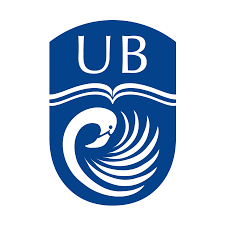Some Alternative Thoughts on Endogenous Development
Sustainable Grand Bahama Conference 2022
DOI:
https://doi.org/10.15362/ijbs.v29i2.475Keywords:
Developmental state, The BahamasAbstract
Following the third Sustainable Grand Bahama Conference held in 2022 under the theme Diversifying and Expanding Our Economy, this contribution seeks to reinforce the importance of a national development framework for The Bahamas that considers the country’s historical, social, cultural, institutional, and political influences. It is argued here that qualitative policy intervention ought to be an important positive force within the context of transnationalism, financialization, and imperfect competition, as socioeconomic advancement is a continuous work in progress for countries at all levels of development. The methodological approach utilised in the article is based on a distinctively Bahamian developmental state perspective alongside aspects of international political economy. The main focus of this contribution is to sketch out the policy framework that might be advisable to develop and diversify Bahamian production lines—given the country’s excessive reliance on tourism and financial services—while helping the country move to the next level of socio-economic progress. A developmental state with Bahamian characteristics is proposed here as a necessary policy framework for the support of selected industries of high potential and achievability while leaving space for further social and political advancement.
References
Amsden, A. (1989). Asia’s next giant: South Korea and late industrialization. Oxford University Press.
Chang, H.-J. (2003). Globalization, economic development and the role of the state. Third World Network/Zed Books.
Cowling, K. (1990). The strategic approach to economic and industrial policy. In K. Cowling & R. Sugden (Eds.), A new economic policy for Britain: Essays on the development of industry (pp. 6–34). Manchester University Press.
Elsner, W. (2019). Policy and state in complexity economics. In N. Karagiannis & J. E. King (Eds.), A modern guide to state intervention (pp. 13–48). Edward Elgar.
Eneas, W. J. G. (1998). Agriculture in The Bahamas: Its historical development, 1492-1992. Media Publishing.
Eneas, W. J. G. (2009). The potential for agricultural development: New agriculture. In N. Karagiannis & O. Saunders (Eds.), The Bahamas in the 21st century (pp. 49–68). Xlibris.
European Commission, Directorate-General for Maritime Affairs and Fisheries, Joint Research Centre. (2018). The 2018 annual economic report on EU blue economy. Publications Office of the European Union. https://data.europa.eu/doi/10.2771/305342
Evans, P. B. (1995). Embedded autonomy: States and industrial transformation. Princeton University Press.
Johnson, C. (1982). MITI and the Japanese miracle: The growth of industrial policy: 1925-1975. Stanford University Press.
Karagiannis, N. (2002a). A new economic strategy for The Bahamas: With special consideration of international competition and the FTAA. UWI Press.
Karagiannis, N. (2002b). Developmental policy and the state: The European Union, East Asia, and the Caribbean. Lexington Books.
Karagiannis, N., & Madjd-Sadjadi, Z. (2007). Modern state intervention in the era of globalization. Edward Elgar.
Karagiannis, N., & Polychroniou, C. J. (2017). Towards a holistic development framework for the Caribbean: Key theoretical notions and policy implications. In N. Karagiannis and D. A. Mohammed (Eds.), The modern Caribbean economy, vol. I (pp. 23–41). Business Expert Press.
Leftwich, A. (1995). Bringing politics back: Towards a model of the development state. Journal of Development Studies, 31(3): 400–27. https://doi.org/10.1080/00220389508422370
Marshall, D. D. (1998). Caribbean political economy at the crossroads: NAFTA and regional developmentalism. Macmillan.
National Development Plan Secretariat. (2017). Vision 2040: National development plan of The Bahamas. Office of the Prime Minister, Economic Development and Planning Unit. https://www.vision2040bahamas.org/media/uploads/Draft__National_Development_Plan_01.12.2016_for_public_release.pdf
Onis, Z. (1991). The logic of the developmental state. Comparative Politics, 24(1), 109–26. https://www.jstor.org/stable/422204
Ramsaran, R. F. (1983). The monetary and financial system of The Bahamas: Growth, structure and operation. University of the West Indies.
Wade, R. (1990). Governing the market: Economic theory and the role of government in East Asian industrialisation. Princeton University Press.
World Bank & United Nations Department of Economic and Social Affairs. (2017). The potential of the blue economy: Increasing long-term benefits of the sustainable use of marine resources for small island developing states and coastal least developed countries. https://sdgs.un.org/sites/default/files/publications/2446blueeconomy.pdf







